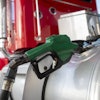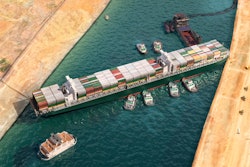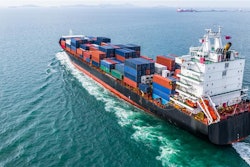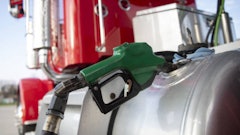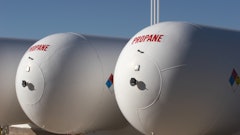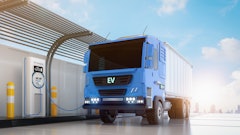
Momentum to reduce emissions and improve air quality across the international port industry continues to grow, and according to the Environmental Protection Agency (EPA), switching to a cleaner fuel is one of the most effective strategies for emissions reduction.
Diesel has traditionally been known as the heavy-lifting workhorse fuel at ports. But, clean, low-emissions energy sources — like propane — can offer considerable environmental and economic advantages for port operations while still providing the power and performance necessary to keep operations on track.
Propane is a reliable engine fuel used in the transportation sector for both on- and off-road vehicles, and its versatility extends to both land- and sea-side applications. Propane can be used in a wide variety of port applications, including port and terminal tractors, forklifts, light- and medium-duty vehicles, shuttles and even small marine vessels. It’s a proven energy source backed by the most trusted engine and fuel system manufacturers producing propane solutions in a variety of horsepower and applications.
Cleaner air for port communities
When selecting an energy source for their equipment and operation, it’s important for port authorities to consider the impacts on not only the air pollution, but also the negative impact it can have on the people living and working nearby. The EPA estimates approximately 39 million people in the United States live in close proximity to ports, and these people can be exposed to air pollution output from diesel engines, putting them at risk of developing asthma, heart disease and other serious health problems. This makes reducing pollutants caused by diesel engines a significant concern for ports and near-port communities. Deemed an approved clean alternative fuel by the Clean Air Act, propane can help aid in healthier air quality in and around ports.
Reduces environmental impact
Because it is non-toxic, propane does not contaminate air, land or water resources. If spilled, propane vaporizes and dissipates into the air, posing no environmental hazard to soil, drinking water or marine ecosystems. Gasoline and diesel, on the other hand, can quickly contaminate groundwater beyond drinking water health advisory levels.
Decreases emissions from equipment
Many port authorities think that to lower emissions, they need to electrify their equipment. However, they’re likely unaware that propane is actually cleaner when lifecycle emissions are taken into consideration.
Propane-powered equipment offers a more transparent emissions profile than electric equipment, given that electric equipment’s site-to-source emissions often go unrecognized. This includes emissions produced in the creation and transmission of electric batteries.
Saying propane is clean is one thing, but having the data to back it up is another. According to data from the Propane Education & Research Council (PERC), using propane produces 43% fewer greenhouse gas emissions than using an equivalent amount of electricity generated from the U.S. grid. Plus, compared with diesel forklift engines, propane forklift engines can produce up to 94% fewer hydrocarbon and nitrogen oxide (NOx) emissions without any drop-off in payload or power.
Propane is only getting cleaner
Propane is only getting cleaner as the energy source continues seeing innovation. Renewable propane is a byproduct of the renewable diesel and jet fuel production process, which converts plant and vegetable oils, waste greases and animal fat into energy. Because it’s produced from renewable, raw materials, renewable propane is even cleaner than conventional propane and far cleaner than other energy sources. And, considering its chemical structure and physical properties are the same as traditional propane, renewable propane can be used for all the same applications.
As ports look to implement green practices, they must first make sure these solutions can fit within their budget and ultimately help to better their bottom line. Fortunately, propane is clean and cost-effective compared with other energy options, especially when refueling and recharging infrastructure costs are taken into consideration. One thing that’s oftentimes overlooked with electric vehicles and equipment is the cost of batteries, the utility costs of keeping them charged, and the costs associated with charging infrastructure.


